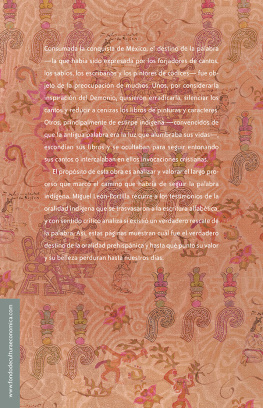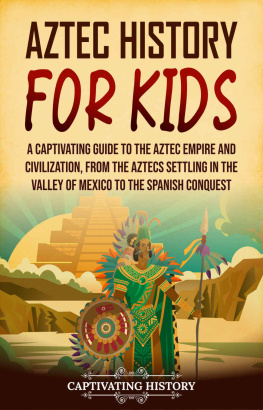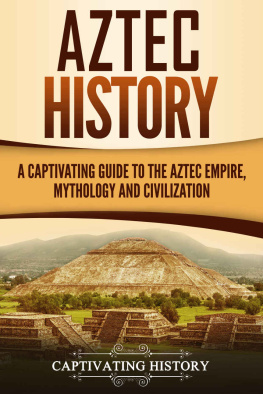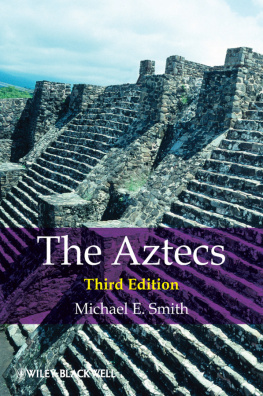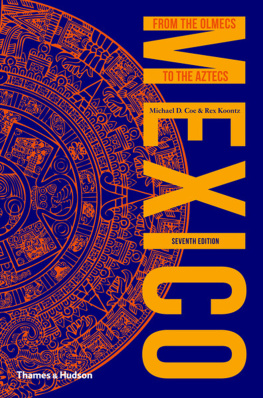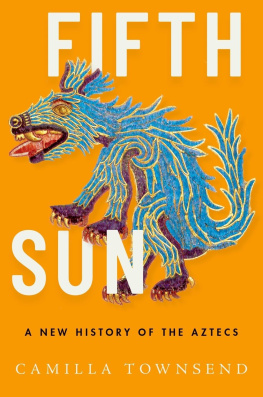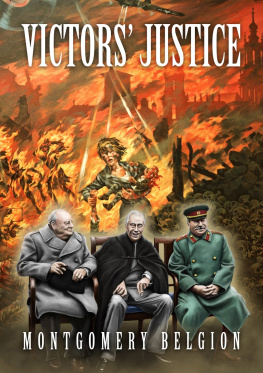With a Foreword by
J. JORGE KLOR DE ALVA
Translated from Nahuatl into Spanish by
ANGEL MARIA GARIBAY K.
English Translation by
LYSANDER KEMP
Illustrations, adapted from original codices paintings, by
ALBERTO BELTRAN
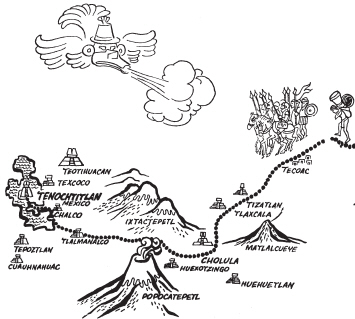
The Broken Spears
The Aztec Account of the Conquest of Mexico
E XPANDED AND U PDATED E DITION
Edited and with an Introduction by
MIGUEL LEON-PORTILLA
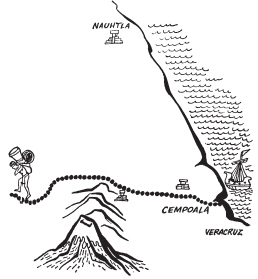
Beacon Press Boston
Contents
Chapter One |
Chapter Two |
Chapter Three |
Chapter Four |
Chapter Five |
Chapter Six |
Chapter Seven |
Chapter Eight |
Chapter Nine |
Chapter Ten |
Chapter Eleven |
Chapter Twelve |
Chapter Thirteen |
Chapter Fourteen |
Chapter Fifteen |
Chapter Sixteen |
This translation is intended for the general reader rather than for the scholar. I have taken many small liberties with the originals, in the belief that a readable version of the drama presented in these documents would be more valuable than a literal rendering of their stylistic peculiarities. Here and there I have added a word or brief phrase to the text for the sake of clarity, and I have omitted words, sentences and even short paragraphs when they contributed nothing except confusion.
I am deeply grateful to Dr. Miguel Leon-Portilla for his generous assistance with a number of problems. If a translator may be permitted to dedicate his share of a book, this English version is dedicated to Soledad Duran, with gratitude and affection.
L YSANDER K EMP
Guadalajara, Jalisco
Mexico
As is well known but quickly forgotten, the victors ordinarily write history. The losers are usually silenced or, if this is impossible, they are dismissed as liars, censored for being traitors, or left to circulate harmlessly in the confined spaces of the defeated. Bringing marginalized perspectives to light is therefore a revolutionary act of some importance: it can subvert dominant understandings, it might inspire other victims to raise their voice and pen their protests, and it always forces old histories to be rewritten to include or at least respond to the vision of the vanquished. For almost 450 years the history of the conquest of Mexico perhaps the most consequential meeting of cultures ever was based overwhelmingly on Spanish accounts. These had the effect of creating a series of false images, the most important being that the defeat of the Aztecs of Mexico-Tenochtitlan always by a handful of Spaniards meant the complete collapse of all native polities and civilization. Traditionalist authors wanted us to understand that Spaniards had triumphed against great odds and had succeeded in bringing about not only military and political conquests but also spiritual, linguistic, and cultural ones. A defeated, silent people, we were asked to believe, had been reduced to subservience and quickly disappeared as Indians to become mestizos, or had simply retreated into rural landscapes.
With probing intelligence, scholarly rigor, and humanist concern, Miguel Leon-Portilla, the dean of contemporary Nahua studies since 1956, has been at the forefront of the struggle to bring the voices of past and present indigenous peoples of Mexico within hearing distance of the rest of the world. And no book has contributed more to this effort than this one. From the time The Broken Spears was first published in 1959 as Visin de los vencidos (Vision of the Vanquished) hundreds of thousands of copies have appeared in Spanish alone, and many tens of thousands have been printed in French, Italian, German, Hebrew, Polish, Swedish, Hungarian, Serbo-Croatian, Portuguese, Japanese, and Catalan. The present English edition, which first came out in 1962, has gone through numerous printings, with tens of thousands of copies sold since 1974. This great international reception among specialists and lay readers, the books extraordinarily wide readership in Mexico, and its extensive use in universities and colleges throughout the United States are due to a number of related factors.
First, although the documents included in all editions prior to this one focus on the sixteenth century, they address topics that have become urgent throughout the so-called Third World in the last fifty years. Interest in the nature of native perspectives started when the decolonization of Asia, Africa, and the Middle East was set in motion at the end of World War II, and grew following the insurrections and revolutions of Latin America, beginning with Cubas in 1959. Ever since, postcolonial nations and those wishing to overthrow oppressive governments have been searching for their indigenous truths and have been busily rewriting their (colonial) histories to match their postindependence aspirations. These efforts have included the quest for models to help make sense of the ways in which the dominated at home and abroad have resisted, adapted, and survived.
A remarkable discussion of how The Broken Spears has served as such a model is found in the prologue to its 1969 Cuban edition, written by one of El Salvadors greatest poets and popular historians, Roque Dalton. The Central American author underlined the universality and inspirational nature of the book by observing that, although the documents referred to the conquest of Mexico, their typicality is such that they constitute a valid testimony of the general conquest of the American continent. [Indeed,] the set of confusions, acts of cowardice, heroisms, and resistances of the Mexicans is very representative of the corresponding attitudes of all the American peoples in the face of the arrival of the conqueror. [And] these indigenous accounts and poems can contribute valuable data to use in locating the roots of the historical violence of Latin America. Dalton, who died in 1975 while fighting in his countrys civil war, concludes by noting that, while Leon-Portilla had dedicated his book to students and nonspecialists, the Cuban edition of these texts is dedicated to the Cuban and Latin American revolutionaries, especially those who, arms in hand, fight in the mountains and the cities against the conquerors [and] Tlaxcalans of today, those who refuse to permit our historical epoch to close with a vision of defeat.
Second, for Mexicans on both sides of the border the story of the Aztecs (or Mexicas, as the residents of Mexico-Tenochtitlan called themselves) has played a critical historical and symbolic role in the formation of their collective identity. In particular, the tale of the Mexicas has served as the national charter myth, standing behind every important nation-building legend or initiative. As a consequence, Jos Emilio Pacheco, one of Mexicos foremost writers, dared to speak for all Mexicans, Indians and mestizos, when claiming the book was a great epic poem of the origins of our nationality. And he did not hesitate to add that it was a classic book and an indispensable work for all Mexicans. In support of this appraisal the National University of Mexico has published more copies of The Broken Spears than of any other text in its long history hundreds of thousands, when in Mexico printings of nonfiction rarely number more than three thousand.
Third, the Nahuatl narratives in this collection, which now includes texts from the eighteenth and twentieth centuries, contribute to our understanding of some of the most important concerns in the world today, especially in the more multicultural nations of Europe and in the United States. These include the challenge of cultural pluralism and social diversity and the search for common ground in a sea of ethnic differences. Independent of nationality or political persuasion, readers who have an interest in the profound political, demographic, and cultural transformations of our anxious age have found something of importance in this work. Not surprisingly, it has become, as Pacheco claimed, a classic book, particularly among those in search of an affirming voice from a non-Western other. In hundreds of U.S. college classes from coast to coast this book has created the occasion for fruitful conversation on the past and present nature of ethnic identity, nationalism, racial conflict, and cultural resistance and adaptation. And as Dalton may have known, by making evident the ancient paths of tragedy, heroism, and resolve, this book has been an inspiration and a guide for U.S. Latinos, especially Chicanos (Mexican Americans), as they attempt to cope, endure, and triumph in the face of adversity or indifference.
Next page

